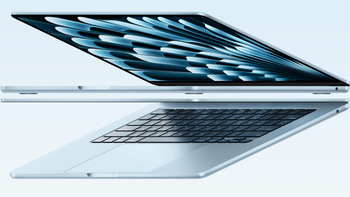Apple’s MacBooks don’t need Intel, but Intel might need Apple’s chip maker

Apple switched from Intel chips to its own custom-made silicon processors in 2020, marking a major shift in its MacBook lineup. Since then, all Apple devices have been powered by its in-house tech, with no Intel processors in sight. However, it looks like the two companies might come together again – just not in the way you might expect.
Intel and TSMC, two heavyweights in the semiconductor world, are reportedly (subscription required) joining forces. The two companies are said to have struck a preliminary deal to create a joint venture, with TSMC taking a 20% stake. This new venture would see TSMC involved in running Intel’s chipmaking facilities, but Intel and other US semiconductor firms would still hold the majority.
In return for the stake, TSMC is expected to share some of its chipmaking methods with Intel and offer training for its staff instead of investing capital directly into the joint venture. However, talks are still ongoing and the final terms aren’t set in stone.
While Intel designs its own chips, TSMC focuses solely on manufacturing – a strategy that has helped it stay ahead of Intel. Intel’s higher costs and lower yields have made its foundries less appealing compared to TSMC’s.
However, there are reportedly concerns within Intel that the deal could lead to job cuts, as the company may need to trim its engineering staff and even sell off some equipment. The two companies use different manufacturing tools and materials, so Intel could be forced to overhaul its operations to align with TSMC’s processes.
Meanwhile, TSMC is dealing with another issue in Washington: the US Department of Commerce is investigating whether the company violated export rules by making chips for Huawei. TSMC has Apple and Nvidia as its biggest customers and since TSMC relies on US chipmaking tech, it must comply with export regulations.
If finalized, the joint venture could help TSMC diminish a major competitor while boosting its bargaining power with the US government. For Intel, it could improve its manufacturing capabilities, leading to laptops with better chip options for us. And while it is unlikely Apple would ever return to Intel chips, a stronger Intel might push Apple to innovate even further.
In return for the stake, TSMC is expected to share some of its chipmaking methods with Intel and offer training for its staff instead of investing capital directly into the joint venture. However, talks are still ongoing and the final terms aren’t set in stone.
This partnership is said to be nudged by the Trump administration in efforts to boost US-based chip manufacturing and halt Intel’s decline. Intel is said to have faced hurdles in making chips for external clients, struggling to match TSMC’s customer service and technical capabilities. These setbacks have reportedly resulted in delays and failed tests.
However, there are reportedly concerns within Intel that the deal could lead to job cuts, as the company may need to trim its engineering staff and even sell off some equipment. The two companies use different manufacturing tools and materials, so Intel could be forced to overhaul its operations to align with TSMC’s processes.
If TSMC gets involved in Intel’s factory operation, the U.S. company may need to consider significant layoffs of semiconductor engineers, revise its equipment procurement strategy and possibly sell some of its expensive machinery.
– People familiar with the matter, April 2025
If finalized, the joint venture could help TSMC diminish a major competitor while boosting its bargaining power with the US government. For Intel, it could improve its manufacturing capabilities, leading to laptops with better chip options for us. And while it is unlikely Apple would ever return to Intel chips, a stronger Intel might push Apple to innovate even further.










Things that are NOT allowed: